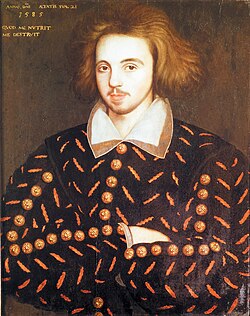Christopher Marlowe (1564–1593) was a seminal figure in Elizabethan drama and a contemporary of William Shakespeare. Born in Canterbury and educated at Cambridge, Marlowe was not only a playwright and poet but also a scholar with rumored ties to espionage. His short but impactful career significantly influenced the development of English drama.
Marlowe is best known for his blank verse, dynamic protagonists, and exploration of ambition and power. His plays often center on overreaching characters who defy limits, both human and divine. His most famous work, Doctor Faustus, portrays a scholar who sells his soul to the devil in pursuit of infinite knowledge and pleasure, reflecting Renaissance ideals and their dangers.
Other notable plays include Tamburlaine the Great, which depicts the rise of a ruthless conqueror, and The Jew of Malta, which explores religious hypocrisy and revenge. In Edward II, Marlowe presents a tragic study of a king whose personal relationships lead to political downfall, showing early psychological depth and political realism.
Marlowe’s contribution to literature lies in his revolutionary use of blank verse and his elevation of the English stage to new poetic heights. His dramatic heroes, known for their passionate intensity and defiant ambition, paved the way for Shakespearean tragedy.
Marlowe’s life was cut short at the age of 29 under mysterious circumstances, allegedly in a tavern brawl. Despite his early death, his bold themes, lyrical power, and tragic vision make him one of the founding figures of modern English drama.
Plays
Doctor Faustus
- Doctor Faustus: General Introduction
- Comic Scenes in Doctor Faustus
- Doctor Faustus as a Morality Play
- Dr. Faustus as a Tragic Hero
- Dr. Faustus as a Renaissance man


